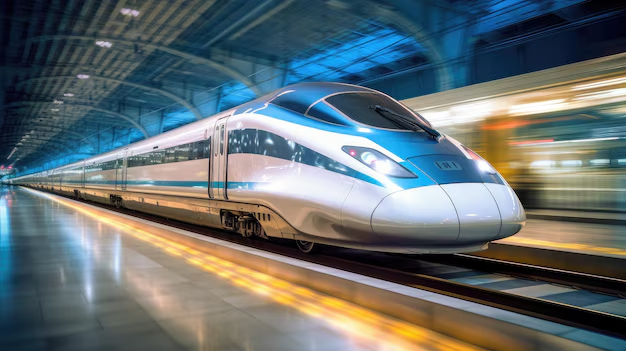India and Japan Set to Finalize Bullet Train Design for Mumbai-Ahmedabad Corridor
India and Japan are on the verge of finalizing the design of the bullet trains for the Mumbai-Ahmedabad High-Speed Rail (MAHSR) Corridor, marking a significant milestone for the country’s ambitious high-speed rail project. This collaboration will not only involve the import of Japan’s renowned Shinkansen trains but will also see India moving towards indigenizing production to meet the needs of the Indian rail network.
The Mumbai-Ahmedabad corridor, one of the country’s first high-speed rail lines, is expected to transform regional connectivity and travel times between the two major cities. With civil work for the project already progressing, over 50% of the required infrastructure has been completed across Gujarat, Maharashtra, and the Union Territory of Dadra and Nagar Haveli. This includes the laying of more than 60 km of rails sourced from Japan, and the commencement of rail welding on viaducts in Gujarat earlier this month.
The finalized bullet train design will be adapted to suit India’s unique climate and conditions. Key adjustments are being made to the Shinkansen trains, including enhanced luggage capacities and the ability to operate in temperatures exceeding 50°C. A special focus is also being placed on addressing the challenge of dust in India, with possible reconfiguration of the seating arrangement to accommodate the local environment, including fewer seats per coach than originally designed. Looking to the future, India plans to not only import these advanced technologies but also to develop them domestically. The Integral Coach Factory (ICF) has been tasked with producing bullet trains capable of speeds of up to 280 km/h. A partnership with BEML will help manufacture these trains at a cost of Rs 866.87 crore, with the first set of bullet trains expected to be delivered by 2026. These trains will feature fully air-conditioned coaches, modern passenger amenities such as reclining and rotatable seats, onboard infotainment, and special provisions for passengers with restricted mobility.
The progress of the MAHSR project reflects India’s commitment to developing its rail infrastructure and preparing for the future of high-speed travel. This collaboration with Japan not only strengthens bilateral ties but also brings advanced technology and expertise to India, which is crucial as the country prepares for its first high-speed rail services. The completion of the Mumbai-Ahmedabad corridor is expected to significantly reduce travel time between the two cities and serve as a model for future high-speed corridors across India.


